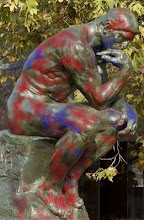Remember me? I am Professor Seth.
Once I taught you geography. Now
I am retired, though my health is good.
My wife died some years back.
By god's grace, all my children
Are well settled in life.
One is sales manager
One is bank manager
Both have cars.
Other also doing well, though not so well.
Every family must have black sheep.
Sarala and Tarala are married,
Their husbands are very nice boys.
You won't believe, but I have eleven grandchildren.
How many issues you have? Three?
That is good. These are days of family planning.
I am not against. We have to change with times.
Whole world is changing. In India also.
We are keeping up. Our progress is progressing.
Old values are going, new values are coming.
Everything is happening with leaps and bounds.
I am going out rarely, now and then
Only, this is price of old age.
But my health is OK, usual aches and pains.
No diabetes, no blood pressure, no heart attack.
This is because of sound habits in youth.
How is your health keeping?
Nicely? I am happy for that.
This year I am sixty nine
And hope to score century.
You were so thin, like stick
Now you are man of weight and consequence.
That is good joke.
If you are coming again this side by chance
Visit please my humble residence also.
I am living just on opposite house's backside.
The Professor, by Nissim Ezekiel
To think that this was written almost half a century ago! (You might also try The Patriot by the same poet). How might the poet have felt if he had lived and observed the 'English-educated' crowd in today's India, where most English teachers themselves don't have the faintest inkling any more about the wretchedness of this pidgin that passes for English (as I should know)?
Horrifying thought: given our numbers, our determination to mangle the language, and the speed with which we are spreading all over the planet, this might be imposed as the International Standard fifty years from now!
Quiz to the readers: how many odd things could you find in the poet's mimicry of Indian English (remembering that language is always a vehicle of culture)?



.jpg)


.JPG)

